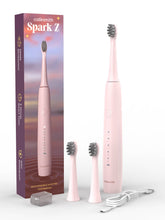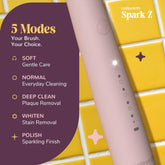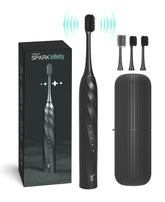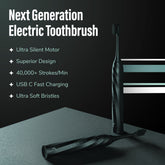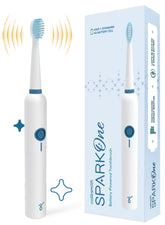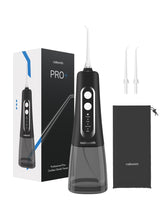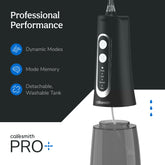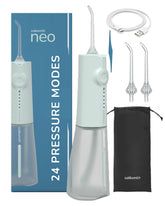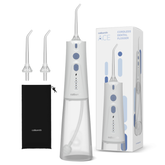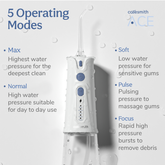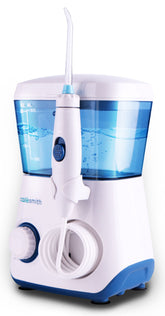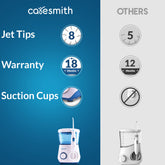Foot and Leg Massager Types, Benefits, Working
Foot massages have held a special place in our traditions. Their earliest mentions come in Vedic literature over 5000 years ago. In Ayurveda, a foot massage, or Padabhyanga, holds an exceptional place. It is said to be helpful in the prevention and treatment of illnesses. Ayurveda recommends that you practise Padabhyanga as a daily ritual, especially before sleeping at night. In Harish Johari’s book Ayurvedic Massage: Traditional Indian Techniques for Balancing Body and Mind, it is said that
“According to the Indian scriptures, diseases do not go near one who massages his legs and feet from knee to toes before sleeping, just as snakes do not approach eagles.”
There have been long discussions on the benefits of foot massage in ancient Chinese, Egyptian and North American cultures. Foot massages have been used for diagnostic and healing purposes. Even today, foot massages are used to release anxiety and other stresses from the body.
Sure, you could go to a parlour or salon and get your feet massaged. But that can become expensive and time-consuming. You could also give yourself one, or ask your loved one to do it for you. But will that really be effective? An electric foot & leg massager here becomes the answer to all the problems.
What is a Foot Massager?
An electric foot massager is a device that provides a therapeutic massage and relaxation to the feet. It uses mechanical components like rollers and heating elements to mimic a masseuse’s techniques, like kneading, rolling, or putting pressure on different parts of the foot.
How does a Foot Massager work?
As we know, a foot massager is made of several different mechanical components that function together to give a massage to your feet and legs. But what exactly are these mechanical components, and how do they work? Don’t worry, because we’re going to be talking about just that.
1. Motors
Motors power the foot massager and they create different movements that provide a different action to the foot, like kneading, rolling, squeezing et cetera.
2. Rollers
These are cylindrical components that rotate to provide a rolling action that a massage therapist uses. They can be made of plastic or rubber.
3. Nodes/Massage Heads
These are dome-shaped objects that target acupuncture points in your feet. They can either stay stationary or move to provide a shiatsu-style massage.
4. Air Bags
These are inflatable bags that can be filled with air and released to offer a squeeze to your feet.
5. Heating element
Typically, infrared radiation is used to provide a pleasant warmth, enhancing your relaxation and increasing blood circulation.
Types of Foot and Leg Massager
Buying a massager for legs isn’t as easy as it seems. For starters, there are so many different types of massagers, you have to know which one is which to select the best one for your needs. Foot massagers differentiate on the coverage they provide, ie. what part of the foot and leg they massage, and what techniques they use.
Let’s take a deeper look into the different types of foot massagers, first by way of coverage.
1. Foot Massager
These are massagers that only massage your feet. These are the simplest types of foot massagers and are relatively affordable compared to other options. You put your feet into them and turn them on. These can knead and squeeze your feet. These are the smallest in size, and hence the most portable. They lack the fact that they can only massage your feet, nothing else. This may lead to a dissatisfied massage experience, as your legs and calves are left alone.
2. Calf Massagers
As the name suggests, calf massagers only cover your calves. These are typically sleeves that you wrap around your calves and turn on. They squeeze your calves to release tension in your calf muscles. These too are more or less priced at a similar range as foot massagers. These are the lightest since they don’t involve many materials, apart from the sleeves.
3. Combination Foot & Leg Massagers
These are a combination of a foot massager and a calf massager, bringing you the best of both worlds. These work because you first step your feet into the base of the massager, and then you wrap the sleeves around your calves. These are the heaviest of the three but offer greater functionality and effectiveness than both. On average, a combination massager is the costliest of the bunch.
Based on the type of massaging action they provide, foot massagers are generally divided into three categories: Shiatsu, roller and air compression.
4. Shiatsu Foot Massagers
These mimic a Japanese traditional massage technique called Shiatsu, which uses pressure from fingers. They use rotating nodes to apply deep, circular pressure on acupoints. These are great when you need to target specific areas, relieve tension and promote energy flow.
5. Roller Foot Massagers
These feature rotating cylinders that move back and forth. They simulate the rolling pin of a massage therapist. These are perfect for people who need a gentle, more uniform massage. This is because the rolling action provides broader coverage, enhancing blood flow and relieving tension in the muscles.
6. Air Compression Massagers
These massagers use inflatable bags that expand and collapse to squeeze the foot. This mimics a masseuse’s hands applying and releasing pressure. The pulsating pressure effect helps in improving circulation and reduces swelling. This is ideal for people with oedema, poor circulation or those who enjoy a pressure-wrap feeling.
A lot of massagers available in the market today apply all three techniques together. The Caresmith Revive Foot and Leg Massager is one of them. It covers both your foot and your leg, and it provides a combination of Shiatsu rollers and air compression to provide the most effective massage to your legs.
Benefits of using a Foot and Leg Massager
There are several benefits that you can take advantage of, which are not limited to:
1. Stress relief
A foot massage triggers the release of endorphins, a neurotransmitter that melts away stress, and brings in pleasure.
2. Improved blood circulation
Better blood flow in your legs means faster recovery and healthier legs.
3. Reduced soreness
Massaging regularly leads to the breaking down of the lactic acid formed between your muscles, which is the reason why they feel sore in the first place.
4. Time-saving
Having an electric leg massager at home saves you time that you’d otherwise have to spend to go to a massage place.
5. More effective
While the effectiveness of a massage at the salon, or in that case by yourself, varies daily, a massager gives the same effectiveness, every day.
6. Better quality of sleep
A massage before you sleep promotes a deeper sleep that has more restorative benefits for your body, making sure you wake up refreshed and energised.
Features to consider when buying a Foot and Leg Massager
You’re convinced that you want to purchase such a massager for yourself. But you can’t just buy the first one out there. You need to consider what’s available out there, and more importantly, what exactly you want from your leg massager. We’ve compiled a list of factors that you must consider before you purchase your massager.
- Coverage: See if you can make do with only a foot or calf massager, or if you need both combined.
- Massage techniques: As discussed earlier, foot massagers can employ Shiatsu massage, roller massage, air compression massage, or a permutation of the three. Think about what problems you have, and select accordingly.
- Intensity levels: Some massagers only operate on a single intensity, while others have a variety of customizable intensities to select from. One thing to consider here is if you’re new to foot massages, then you might want to consider starting at a soft intensity, and then working your way up progressively for deeper pain and tension.
- Heat function: Some massagers opt not to give a heating function. See if heating is something you need, or can do without.
- Size and adjustability: Massagers too come with foot sizes like our footwear does. Confirm that the massager you’re purchasing can accommodate your foot size comfortably.
- Noise level: A quieter massager means more relaxation and less nuisance.
- Portability: Some massagers can become so heavy that you can’t use them everywhere. A tradeoff to consider here is that the more features a massager has the greater its weight will be.
- Price: We cannot pretend like price isn’t a deciding factor. Generally speaking, the more features you opt for, the greater the price will be. Using the list above, come to an understanding of what features are non-negotiables, and what features you’re willing to let go of.
Frequently Asked Questions
1. Is it safe to use a foot & leg massager?
These massagers are safe when used as directed. Read the manual, start on low intensity, and stop immediately if you feel any discomfort.
2. Are there any health benefits to a foot and leg massager?
Yes! They reduce stress, ease muscle pain, and improve blood circulation. Some users have also seen an increased recovery post-workout and relief from conditions like plantar fasciitis.
3. Can patients with diabetes use the foot circulation machine safely?
Most diabetics can, as these machines can improve blood flow, which is often a problem in diabetes. But always check with your doctor first, especially if you have neuropathy or foot injuries.
4. Do electric foot massagers improve blood circulation?
Yes, they do. The kneading, rolling and compression offered can stimulate your blood vessels, improving circulation in your legs. Better blood flow equals faster healing and healthier limbs.


